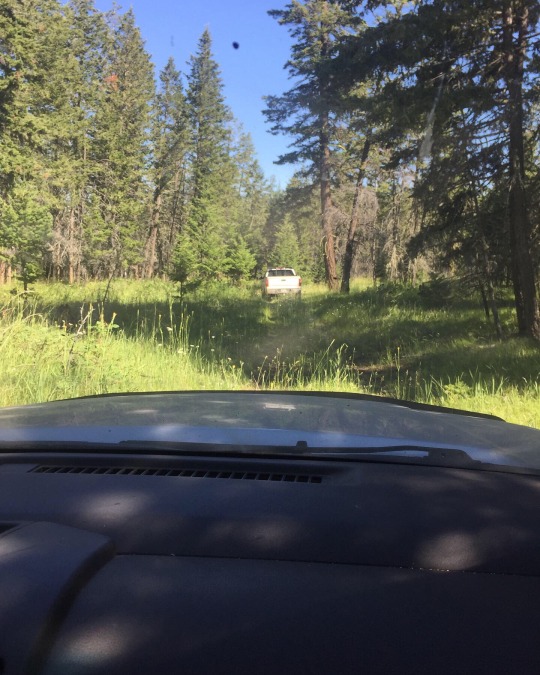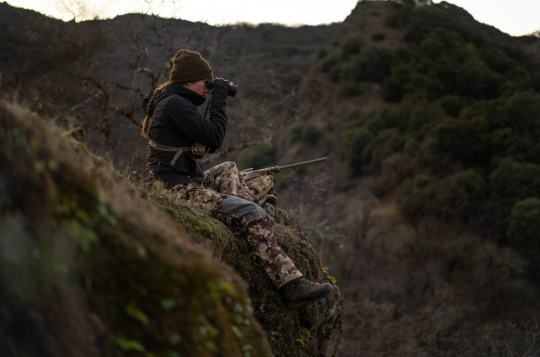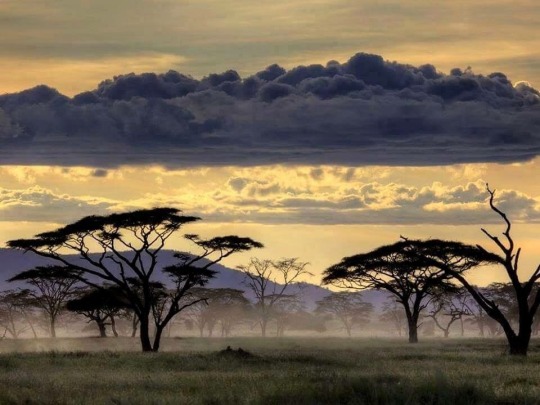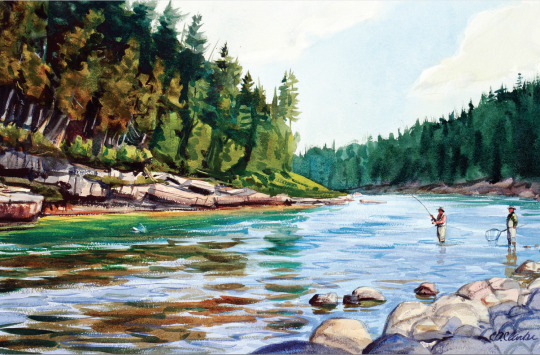Hunting, fishing and otherwise pursuing life in the wild.
Don't wanna be here? Send us removal request.
Text

Photo courtesy of Sitkagear.com
"Ortega has grasped that essential human nature is inseparable from the hunting and killing of animals and that from this comes the most advanced aspects of human behaviour. Intelligence in our species is a highly specialized function by which natural selection built the hunter's capacity to plan on the intensely social foundation of primate ancestry. The emergence of such complex functions as the unconsciousness, of language, and of dreams are inextricably part of the Paleolithic. Ortega does scorn but affirms this past."
Paul Shepard, in the Introduction to Ortega e Gassett's "Meditations On Hunting"
0 notes
Photo
“Accepting the Gift”
“If there is a sacred moment in the pursuit of game, it is the moment you release the arrow or touch off the fatal shot. ….. If there is a time for reverence in the ethical hunt , it is when you claim, or accept , what you have killed. For the hunter this can be the most serious and meaningful moment of the hunt.”
Jim Posewitz, ‘Beyond Fair Chase: The Ethic and Tradition of Hunting’

8 notes
·
View notes
Text



Land, then, is not merely soil, it is a fountain of energy flowing through a circuit of solid, plants, and animals. Food chains are the living channels which conduct energy upward; death and decay return it to the soil. The circuit is not closed; some energy is dissipated in decay, some is added by adsorption from the air, some is stored in soils, peats, and long-lived forests; but it is a sustained circuit, like a slowly augmented revolving fund of life.
Aldo Leopold, ‘A Sand County Almanac With Essays on Conservation From Round River
2 notes
·
View notes
Photo
“The very existence of predation in nature, of animals eating animals, is the cause of much anguished hand wringing in the animal rights literature … A deep current of Puritanism runs through the writings of the animal philosophers, an abiding discomfort not only with our animality, but with animals’ animality, too. They would like nothing better than to airlift us from nature’s ‘intrinsic evil’ – and then take the animals with us. You begin to wonder if their quarrel isn’t really with nature itself.”
Michael Pollan, The Omnivore's Dilemma (2006)

16 notes
·
View notes
Text

Photo copyright SitkaGear.com
“Hunting is the taproot consideration, the anchoring thread that has lately been taking the brunt of a culture’s changing attitudes. It has been involved with 99% of human evolution and has been one of the principal factors in shaping our relationship toward nature.”
Allen Morris Jones, A Quiet Place of Violence: Hunting and Ethics in the Missouri River Breaks (2012)
0 notes
Text

“That had been a fine hunt. The afternoon of the day we came into the country we walked about four miles from camp along a deep rhino trail that graded through the grassy hills with their abandoned orchard-looking trees, as smoothly and evenly as though an engineer had planned it. The trail was a foot deep in the ground and smoothly worn and we left it where it slanted down through a divide in the hills like a dry irrigation ditch and climbed, sweating, the small steep hill on the right to sit there with our backs against the hilltop and glass the country. It was a green, pleasant country, with hills below the forest that grew thick on the side of the mountain, and it was cut by the valleys of several watercourses that came down out of the thick timber on the mountain. Fingers of the forest came down onto the heads of some of the slopes and it was there, at the forest edge, that we watched for rhino to come out. If you looked away from the forest and the mountain side you could follow the watercourses and the hilly slope of the land down until the land flattened and the grass was brown and burned and, away, across a long sweep of country, was the brown Rift Valley and the shine of Lake Manyara.”
Ernest Hemingway, The Green Hills of Africa (1935)
0 notes
Text

“It was a huge, beautiful Kudu bull, stone-dead, on his side, his horns in great dark spirals, wide spread and unbelievable …. I looked at him, big, long-legged, a smooth gray with the white stripes and the great, curling, sweeping horns, brown as walnut meats, and ivory pointed, at the big ears and the great, lovely heavy-maned neck the white chevron between his eyes and the white of his muzzle and I stooped over and touched him to try to believe it. He was lying on the side where the bullet had gone in and there was not a mark on him and he smelled sweet and lovely like the breath of cattle and the odour of thyme after rain.”
Ernest Hemingway, "The Green Hills of Africa"
2 notes
·
View notes
Photo

This is the Mauser-action .275 that was presented to Jim Corbett in 1907, in gratitude for him killing the tiger in Champwat that had killed 436 people.
107 notes
·
View notes
Text

"A good hunter's way of hunting is a hard job which demands much from a man: he must keep himself fit, face extreme fatigues, accept danger. It involves a complete code of ethics of the most distinguished design; the hunter that accepts the sporting code of ethics keeps his commandments in the greatest solitude, with no witnesses or audience other than the sharp peaks of the mountains, the roaming cloud, the stern oak, the trembling juniper, and the passing animal."
Jose Ortega y Gasset, Meditations on Hunting (1942)
2 notes
·
View notes
Photo

1 note
·
View note
Photo


1 note
·
View note







